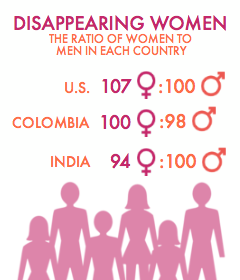
September 26, 2013 | Education, Health and Well-Being, Economic Opportunity
From Plastic to Fantastic
Turning litter into jobs for street girls in Ghana
When residents of Accra, the capital of Ghana, want a drink of clean water, they don't turn on the tap. Instead they buy a baggie filled with H2O. It's cheap, it's safe…the only problem is, since the city has no formal waste collection, every day 60 tons of plastic end up littering the streets of Accra.
Accra has another problem: Its streets are "home" to 21,000 children, 6,000 babies and 7,000 young mothers under the age of 20.
But a nonprofit called ABAN (it stands for: "a ban against neglect" and also translates into "fence") has a solution to both dilemmas. ABAN gathers up the discarded baggies and uses them as the raw material for products sold around the world. The resulting, totes, wallets and bags are produced by former street girls, who get shelter and seamstress training as well as lessons in business, English, math, and life skills.
ABAN was started by two young American women who did a study-abroad stint in Ghana in 2008: Callie Brauel (University of North Carolina, class of 2009) and Becca Brandt (Concordia University, 2010). They collaborated with a local university student, Emmanuel Carmyne, who is ABAN’s Ghana director.
"To both Becca and me, it seemed very unfair, knowing that girls our age or younger were out on the streets, fending for themselves and we were going back to a college education and a safe bed and a warm meal," Brauel says. Many of these women, she adds, begged or sold themselves for a skimpy living, often sleeping in packs in the marketplace for safety at night.
Aban’s first class was 10 girls; currently, they have 20, with aspirations to grow it to 30, and a new tract of land to build a campus. And their products—which are sold in U.S. stores such as certain Whole Foods branches as well as online—are both colorful and practical. A tote, for instance, uses up 80 baggies; a messenger bag, 100; and a picnic blanket a whopping 350 baggies.
"We never thought it would be as big as it was today," Brauel says. "One thing has lead to another, and here we are, almost five years later."
Brauel tells about a young woman who was interviewed for the program—and was completely floored by one question. When the interviewer asked her what she wanted to be when she when she grew up, she broke down in tears. No one had ever presented her with that choice before.
The message, says Brauel: "You hold your future in your hands, and you can make something with that life."
To learn more about ABAN, go to www.aban.org.